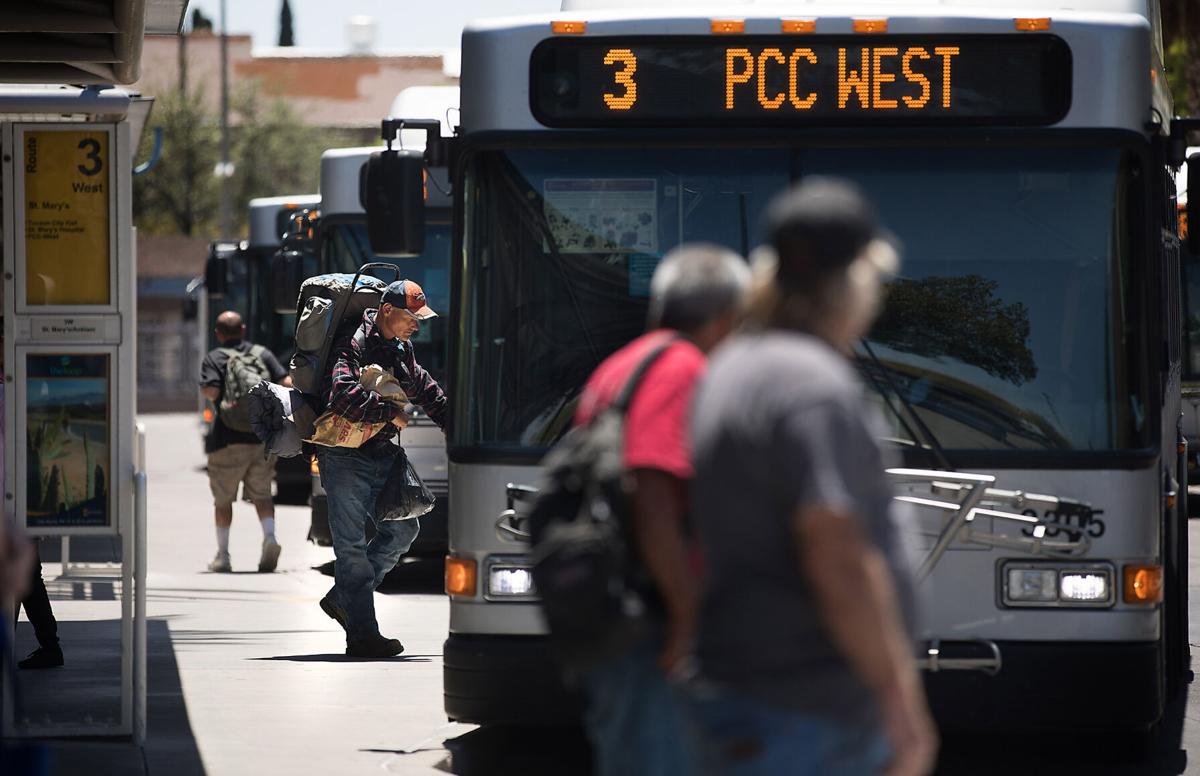The free rides are nearly over for Tucsonans who use public transit unless the city can find $9 million or so a year to keep them going.
Fare-free bus, van and streetcar rides, which began in 2020 as a way to limit contact between drivers and passengers during the pandemic, are slated to end on Dec. 31 without a new infusion of public or private money.
Officials at University of Arizona, where some student leaders are pushing for permanent fare-free transit, have not yet said publicly if the UA will contribute.
The City Council is expected to vote next month on the future of the program funded until recently by federal COVID-19 relief grants now poised to expire.
A staff study, reviewed by the council last month, looked at several U.S. communities with fare-free transit systems and found they have something in common Tucson lacks: a funding source specifically dedicated to that purpose.
Some locales rely on sales tax or property tax or a vehicle rental tax to make up for revenue once covered by transit fares. Others receive financial contributions from universities or private employers.
In Tucson, 60% of Sun Link streetcar riders and 20% of Sun Tran bus riders are UA students, Ward 6 councilman Steve Kozachik said at an Oct. 5 study session. UA student leaders have publicly pleaded with the City Council to keep the system free of charge for users, he noted.
“We need you to knock on Bobby Robbins’ door,” Kozachik said of the student lobbying effort, referring to UA President Robert Robbins.
UA spokeswoman Pam Scott said the school already contributes about $800,000 a year to the transit system by subsidizing 50% of the cost of transit passes for faculty, staff and students. The UA has done so for years and plans to continue the practice, she said in a Nov. 17 email interview.
Asked about the possibility of a larger contribution, Scott said “I don’t have anything to add at this time.”
City officials said they also plan to seek funding from other entities such as Pima Community College and private employers.
About 5,600 Tucsonans who answered a survey this year were 82% in favor of keeping the transit system fare-free. But that sentiment was not shared by the nearly 50 transit operators who took a similar quiz.
About 83% of bus drivers, 75% of streetcar operators and 89% of paratransit van drivers who responded said Tucson should go back to charging for rides, the study said.
Drivers reported a sharp increase in assaults on operators and passengers after free fares took effect, from 21 incidents in 2019 to 64 in 2021. Many of the disputes arose when riders refused to wear face masks on board, officials said.
Several cities with fare-free transit have adopted strict codes of conduct that allow riders to be banned for repeat violations and new rules to prevent unsheltered people from riding around continuously to escape the elements.
Tucson transit officials say they’ve already made improvements by adding extra security staffing to increase onboard safety.
Ward 3 Councilman Kevin Dahl said free bus and streetcar rides will help the city meet its environmental goals by reducing emissions from private vehicles.
“For me, climate change is the reason to invest in a free transit system, so we can get more people out of their cars and into public transit,” he said.
Learn how Tucson public transit provider Sun Tran is electrifying its bus fleet.





